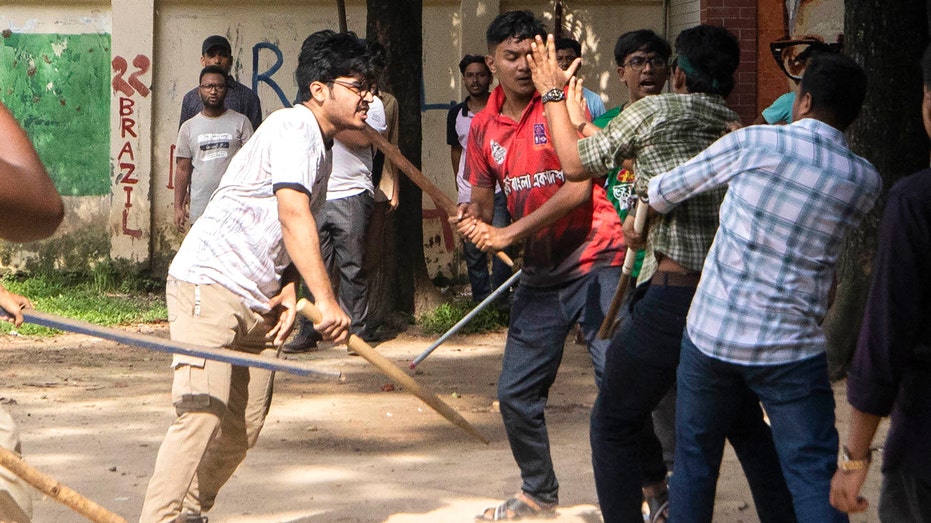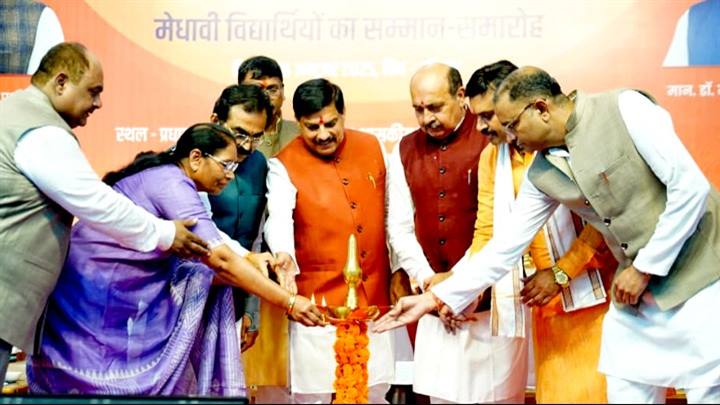Bangladesh urges universities to close after 6 die in protests, bombs and weapons found
Bangladeshi authorities urged universities to close after six people died in protests against a quota that reserves some jobs for relatives of Bangladesh’s independence war veterans.

Authorities in Bangladesh urged all universities to close on Wednesday, the day after at least six people died in violent protests over the allocation of government jobs and police raided the headquarters of the main opposition party.
Dhaka University, at the center of the violence, decided to suspend classes and close its dormitories indefinitely, a university official told The Associated Press, speaking on condition of anonymity as he was not authorized to speak to media.
The University Grants Commission asked all public and private universities to close until further notice, in order to protect students, but the request did not have legal force and it was not immediately clear how many universities would comply.
Authorities said that at least six people were killed on Tuesday in violence across the country as student protesters clashed with pro-government student activists and with police, and violence was reported around the capital, Dhaka, the southeastern city of Chattogram and the northern city of Rangpur.
Overnight, Dhaka police raided the headquarters of the opposition Bangladesh Nationalist Party, accusing it of playing a role in the violence.
Detective chief Harun-or-Rashid told reporters that police had arrested seven members of the party’s student wing in connection with two buses that were set on fire Tuesday. He added that detectives found 100 crude bombs, 500 wooden and bamboo sticks, and five to six bottles of gasoline in the raid.
Ruhul Kabir Rizvi, a senior BNP leader, accused the government of "staging" the raid to divert attention from protests.
The protests began late last month, demanding an end to a quota that reserves 30% of government jobs for relatives of veterans of Bangladesh’s 1971 war of independence, but turned violent on Monday as protesters at Dhaka University clashed with police and counter-protests organized by the student wing of the governing Awami League party, leaving 100 people injured.
Violence spread overnight to Jahangir Nagar University in Savar, outside Dhaka, and was reported elsewhere around the country on Tuesday.
On Wednesday, stray protests took place at Dhaka University and elsewhere in the country. Police were deployed on the campus, while paramilitary border forces patrolled the streets in Dhaka and other big cities.
Protesters argue the veterans’ families quota is discriminatory, and argue it benefits supporters of Prime Minister Sheikh Hasina, whose Awami League party led the independence movement. Ruling party leaders accuse the opposition of backing the protests. Protesters have said they are apolitical.
The quota system also reserves government jobs for women, disabled people and members of ethnic minorities, but protesters have only sought to end the quota for families of veterans.
While job opportunities have expanded in Bangladesh’s private sector, many people prefer government jobs because they are seen as stable and high-paying. Each year, nearly 400,000 graduates compete for 3,000 such jobs in the civil service exam.
The quota system was temporarily halted in 2018, following a court order that followed an earlier wave of mass student protests in 2018. But last month, Bangladesh’s High Court nullified that decision, angering students and triggering renewed protests.
Last week, the Supreme Court suspended the High Court’s order for four weeks, as the chief justice asked students to return to classes. But the protests continued.
Hasina defended the quota system Tuesday, saying that veterans deserve the highest respect for their sacrifice in 1971 regardless of their current political affiliation.
"Abandoning the dream of their own life, leaving behind their families, parents and everything, they joined the war with whatever they had," she said during an event at her office in Dhaka.






















